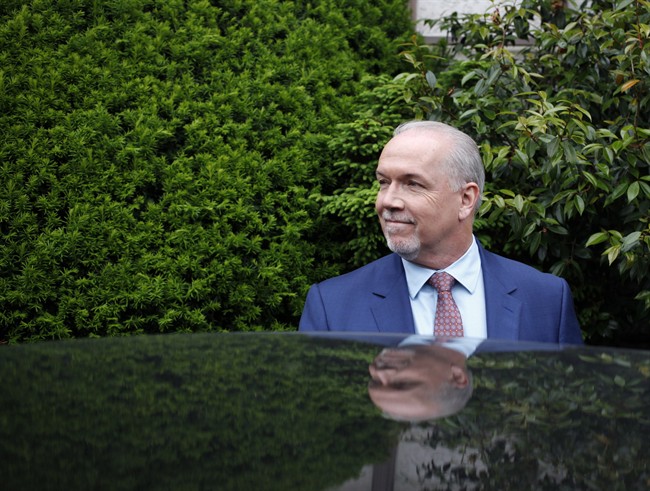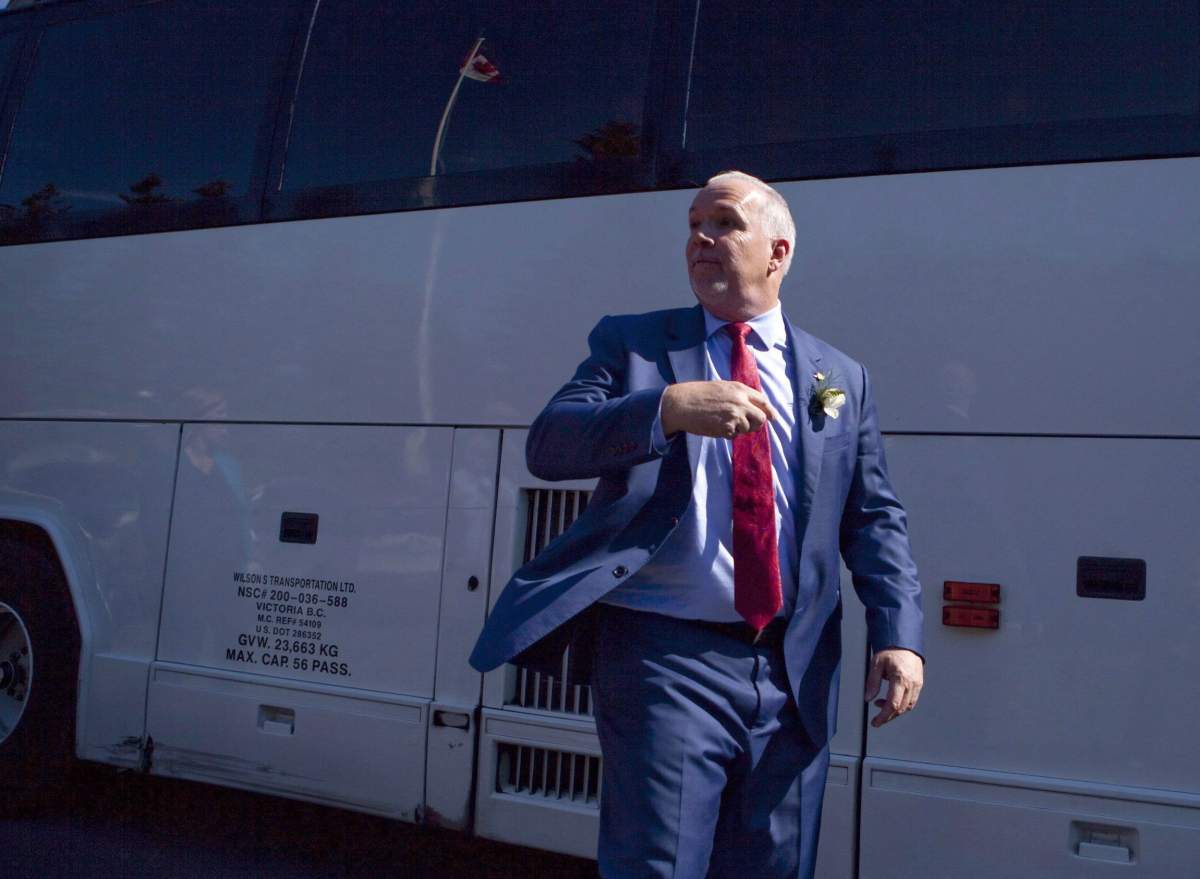The NDP seems hell-bent on ensuring B.C. won’t see the kind of government headed up by past party premiers as Dave Barrett, Mike Harcourt and Glen Clark ever again.

That’s one takeaway from the NDP government’s absolute determination to change our voting system to a proportional representation (PR) model, a change that would prevent the party from having total control over its agenda should it prove victorious in subsequent elections.
WATCH: Poll finds most British Columbians support proportional representation

And that’s why a number of party stalwarts are scratching their heads, wondering why the NDP would so willingly give up the chance every four years of being in a position to implement its own policies – and not those forced upon it by others – in favour of electoral reform.
The NDP government has just launched a public consultation process, which seems biased toward a “yes” outcome in next fall’s referendum on whether to switch to a PR model.
The questions on an online questionnaire are obviously loaded in favour of the PR argument and, as I have noted before, a multi-question preferential ballot.
READ MORE: Public asked to weigh in on B.C.’s proportional representation referendum

Get daily National news
Bill Tieleman, a veteran NDP activist and commentator, is among those in the party who say the days of an NDP government with a mandate of progressive change – as was won by Barrett, Harcourt and Clark and, one could argue, the current Premier John Horgan – “are just about zero” in the future under a proportional representation model.
“Would we ever see the future equivalent of an Agricultural Land Reserve (ALR)? Public auto insurance? Worker-friendly Labour Code? Snowball’s chance in a very hot place,” he told me.
Here’s the problem: the NDP has never won 50 per cent of the popular vote and in all likelihood never will (only the BC Liberals, in 2001, have exceeded the 50 per cent mark).

Under any model of proportional representation, the NDP would have to form a coalition with another party (most likely the Green Party) in order to hold on to power.
It would also have to accommodate that party’s interests, potentially sacrificing some of their own along the way.
That is not the arrangement in the legislature right now. While the NDP needs the support of the Greens to maintain power, there is no formal coalition agreement (and the Greens, for all intents and purposes, are stuck having to keep the NDP in power until at least July 2021, since that is the earliest an election under a proportional representation model can take place).
And Tieleman, who led successful campaigns against the HST and past attempts at electoral reform and will do so again this time around, pointed to another worrisome scenario (from the NDP’s point of view) that may well take root under a PR model.
READ MORE: NDP and Greens band together on B.C.’s proportional representation referendum
He said NDP supporters of PR are mistakenly assuming that such a model would routinely elect left-of-centre governments, with the NDP taking the lead role.
Not so fast, he warned.
“More likely is a regular diet of right-of-centre governments with a BC Liberal-BC Conservative coalition, sometimes propped up by new and fringe hard-right parties,” he said.
“It would be ironic if the BC NDP were the author of its own political demise and marginalization.”
And there is some basis for New Democrats (and others) to fear the rise of a social conservative party that holds extreme positions on such issues as abortion, gay rights and immigration.
Look no further than what is happening in the Fraser Valley, where hundreds of people in Chilliwack recently turned out for a meeting lambasting gay rights.
READ MORE: Barry Neufeld, Chilliwack school trustee, compares gender transitioning to ‘child abuse’
This province has had a long, ugly history of racism and intolerance in some communities and some quarters of our society.
It is not inconceivable that those feelings could coalesce under a new fringe party’s banner, and allow it to somehow play an outsized, influential role that is currently denied them under the first-past-the-post system.
That, at least, is the fear expressed by Tieleman and other New Democrats, and by others across the political spectrum.
It would be ironic indeed if the NDP, in future elections, were to be muscled aside by a coalition of right-wing opponents, suddenly empowered by a change in the voting rules that the NDP pushed so hard for.
- Keith Baldrey is chief political reporter for Global BC; Keith.baldrey@globalnews.ca
- Trial starts for man charged in connection with fatal stabbing outside Vancouver Starbucks
- Deaths of Prince Rupert family ruled homicide-suicide, inquest finds
- More than 100 B.C. First Nations urge Eby to uphold DRIPA or risk backslide
- Tumbler Ridge B.C. school shooting: 10 dead including shooter, 27 injured







Comments
Want to discuss? Please read our Commenting Policy first.